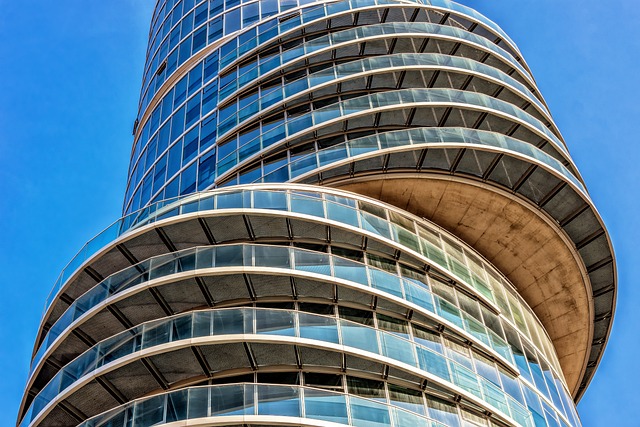Executive Condominiums (ECs) play a significant role in Singapore's real estate landscape, acting as a middle ground between public and private housing. They offer the advantages of high-end condo living at more affordable prices, complete with shared fa…….
Category: Executive Condominium
Introduction
Condominiums have long been a cornerstone of urban living, offering residents the benefits of homeownership while providing the perks of a low-maintenance lifestyle. Among these, executive condominiums (ECs) hold a unique position in the real estate market. These are hybrid homes that combine the benefits of a private condo with the affordability of public housing. This article will delve into the intricacies of ECs, exploring their significance, global impact, economic considerations, technological advancements, policy frameworks, challenges, case studies, and future prospects. By the end of this exploration, readers will have a comprehensive understanding of executive condominiums and their role in modern society.
Understanding Executive-Condominium
Executive condominiums are a housing type designed to cater to middle-income families. They are a cross between public and private housing, offering the advantages of both ownership and subsidized living. ECs are typically developed by government-linked companies or private developers in partnership with the government. These residences are initially sold at subsidized prices and over time, can be fully privatized.
Historically, ECs originated to address the housing needs of upgrading families who outgrew their public housing but may not yet afford a market-rate condo. They have evolved to become a significant segment of the housing market in countries like Singapore, where they play a pivotal role.
The core components of an EC include a mix of one-to five-room units, with shared facilities such as swimming pools, gyms, and BBQ pits. These are strategically located near amenities and transportation networks to enhance connectivity and livability.
Global Impact and Trends
The concept of executive condominiums has resonated globally, with countries adapting the model to suit local needs. In regions like Asia, ECs have become a popular choice for homebuyers seeking affordable yet quality living spaces. Key trends influencing the trajectory of ECs include demographic shifts, urbanization, and changes in family structures.
In cities such as Singapore, ECs have been instrumental in managing the housing demands of the growing population. The trend reflects a global move towards sustainable and adaptable living solutions that cater to diverse income groups and lifestyles.
Economic Considerations
ECs play a multifaceted role in the economic landscape. They stimulate construction and real estate sectors, provide affordable housing options, and contribute to the overall economic development by integrating middle-income earners into the property market. Market dynamics around ECs are driven by factors such as interest rates, mortgage policies, and general economic conditions.
Investment patterns in ECs show a preference for properties that offer long-term value and rental potential. The role of ECs in economic systems is not just limited to providing housing but also to fostering community development and enhancing the socio-economic status of residents.
Technological Advancements
The integration of technology into ECs has revolutionized living standards, offering smart home features, energy efficiency, and advanced security systems. Technological advancements have made ECs more sustainable, cost-effective, and adaptable to future needs. Innovations such as building information modeling (BIM) in construction, green technologies, and IoT integration are shaping the future of ECs.
Future potential includes the development of smart cities and communities where ECs play a central role. The convergence of technology and living spaces promises to enhance the quality of life for residents and make ECs more attractive to prospective buyers.
Policy and Regulation
Policies and regulations governing ECs are critical in ensuring their success and sustainability. These include eligibility criteria for purchase, resale price mechanisms, and policies that promote the transition from public to private ownership. The legislative framework also addresses issues such as lease buyback schemes and minimum occupation periods.
The regulatory environment influences the development, pricing, and availability of ECs, thereby impacting their role in the broader housing market and economic development. It is essential for policymakers to balance affordability with market dynamics to ensure the viability and desirability of ECs.
Challenges and Criticisms
Executive condominiums face several challenges, including maintaining affordability, managing demand-supply gaps, and ensuring sustainable development. Critics argue that the transition from public to private ownership can lead to increased costs, potentially pricing out original buyers.
Actionable solutions include refining eligibility criteria, implementing dynamic pricing models, and enhancing the sustainability of ECs through green initiatives. Policymakers must address these challenges to ensure that ECs continue to fulfill their intended purpose.
Case Studies
Several case studies illustrate the successful application of executive condominiums. For instance, Singapore’s EC model has been a resounding success, providing affordable housing for tens of thousands of families. Other countries have adapted the concept to suit local needs, with varying degrees of success.
Lessons learned from these case studies highlight the importance of strategic planning, effective policy implementation, and community engagement in the success of ECs. These examples serve as valuable insights for other regions considering similar housing solutions.
Future Prospects
The future outlook for executive condominiums is positive, with a growing need for affordable yet quality living spaces. Trends such as aging populations and shifting family dynamics will continue to influence the evolution of ECs. Sustainability and adaptability will be key factors in the development of future ECs.
Innovations in design, construction, and technology will further enhance the appeal and functionality of ECs. The potential for ECs to become a cornerstone of sustainable urban living is significant, provided they continue to evolve in response to changing needs and economic conditions.
Conclusion
Executive condominiums represent a critical component of the housing market, offering a unique blend of affordability, ownership, and community living. The global impact of ECs reflects their significance in addressing housing challenges and contributing to economic development.
The integration of technology, smart design, and sustainable practices will ensure that ECs remain relevant and desirable. As countries continue to adapt the concept to local needs, the future of executive condominiums looks promising, with the potential to transform cities and enhance the lives of residents worldwide.
Navigating Executive Condominiums: A Comprehensive Guide to Singapore’s Evolving Housing Option
Singapore's Executive Condominiums (ECs) are a unique housing category designed for middle-income earners, serving as a bridge between public and private housing. They offer modern amenities such as swimming pools, fitness centers, and playgrounds, and ar…….
2023 Guide to Singapore’s Executive Condominiums: Investment, Features, and Design Trends
2023 sees Executive Condominiums (ECs) in Singapore as a significant housing option for middle-income families, offering a mix of affordability and luxury. ECs are designed to transition from public to private status after five years, potentially increasing th…….
Navigating Executive Condominiums (ECs) in Singapore: Your Guide to Affordable Living and Market Insights
Executive Condominiums (ECs) in Singapore are a specialized housing option designed for middle-income families and investors, offering a blend of condominium luxury with public housing affordability. ECs provide spacious and modern units that are more substant…….
Bukit Batok EC Unveiled: Luxury Amenities, Design, and Connectivity in Singapore
The Bukit Batok Executive Condominium is a luxury living complex that sets high standards for modern urban living. It features top-notch amenities, including a wellness spa, fitness center, aquatic facilities like a 50-meter swimming pool and hydrotherapy poo…….
Navigating the EC Rental Landscape in Singapore: A Comprehensive Guide
Executive Condominiums (ECs) in Singapore serve as a middle ground between public and private housing, offering the amenities of a luxury condo with subsidies and benefits similar to those found in public housing. After a decade, ECs transition from public to …….
Discovering the Tampines Executive Condo Advantage: A Home for Investors and Families
The Tampines Executive Condominium (EC) offers a blend of luxury and convenience for residents seeking a balanced lifestyle close to urban amenities in Singapore's eastern district. This EC provides high-quality living at an affordable price, featuring on…….
Navigating Singapore’s Executive Condominium Market: A Guide to New Launch Opportunities
2023 saw a significant rise in interest for Executive Condominiums (ECs) in Singapore as they offer a unique blend of private condo amenities with the affordability and government subsidies of public housing. ECs are particularly attractive due to their cost-e…….
Optimizing Your Living Space: A Guide to Executive Condominium Floor Plan Choices
When selecting an Executive Condominium (EC) in Singapore, it's crucial to choose a floor plan that not only fits your current lifestyle but also has the flexibility to adapt to future changes. Opt for a layout that maximizes space, privacy, and natural …….
2023 Guide to Singapore’s Executive Condominium Trends and Buying Insights
2023 marks a pivotal year for Singapore's Executive Condominium (EC) sector, with new developments and policy reforms enhancing their appeal as a sustainable and affordable housing option for middle-income families. The latest EC projects are strategicall…….








